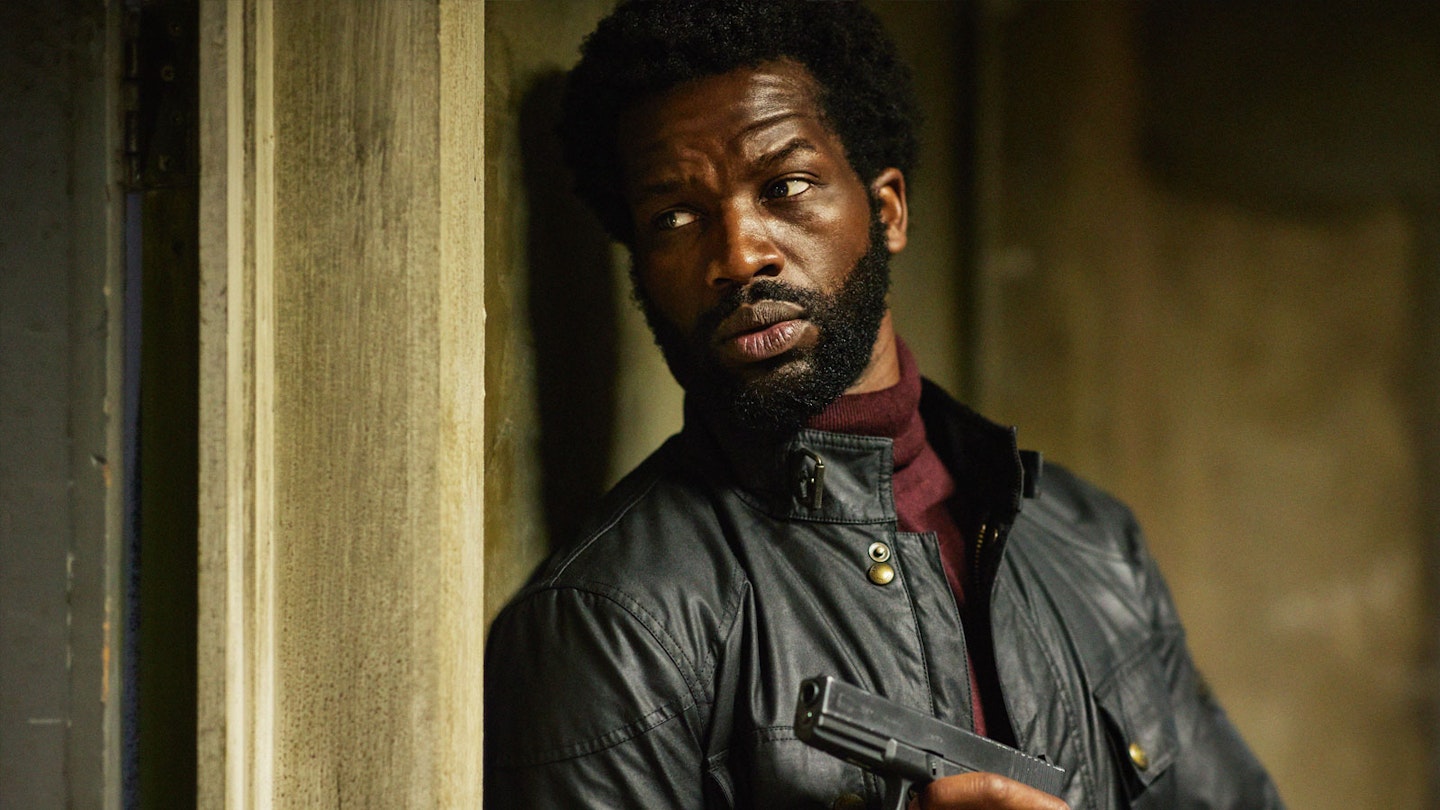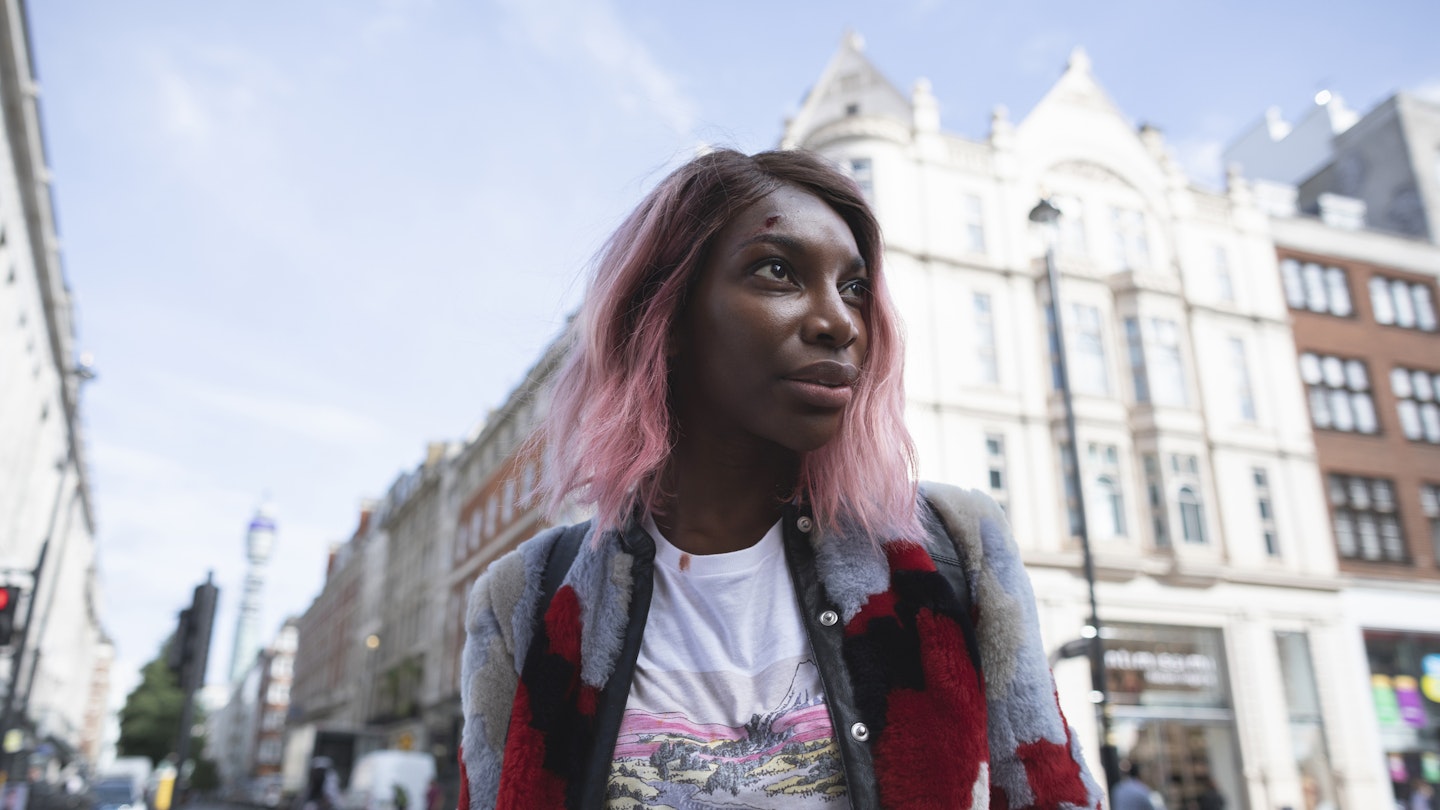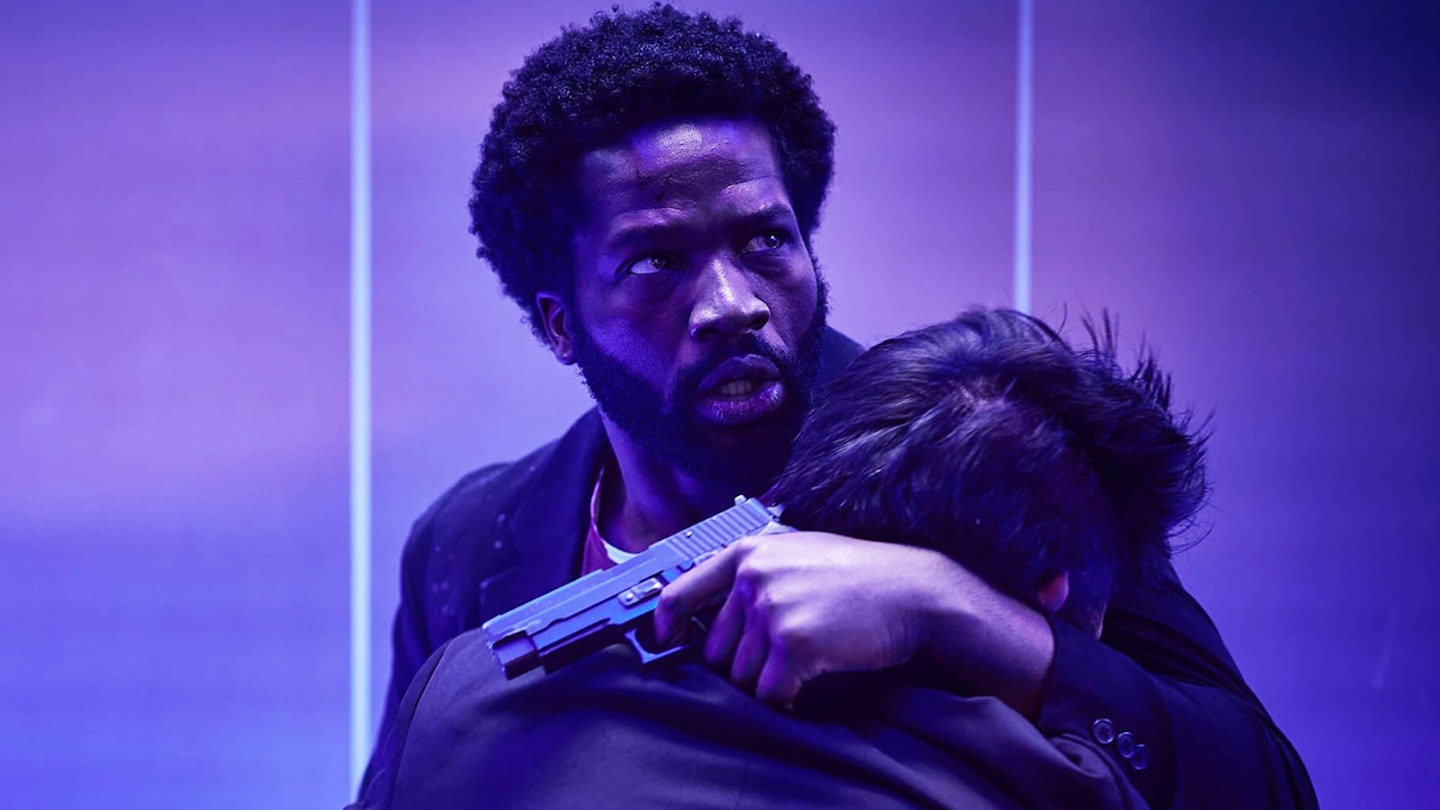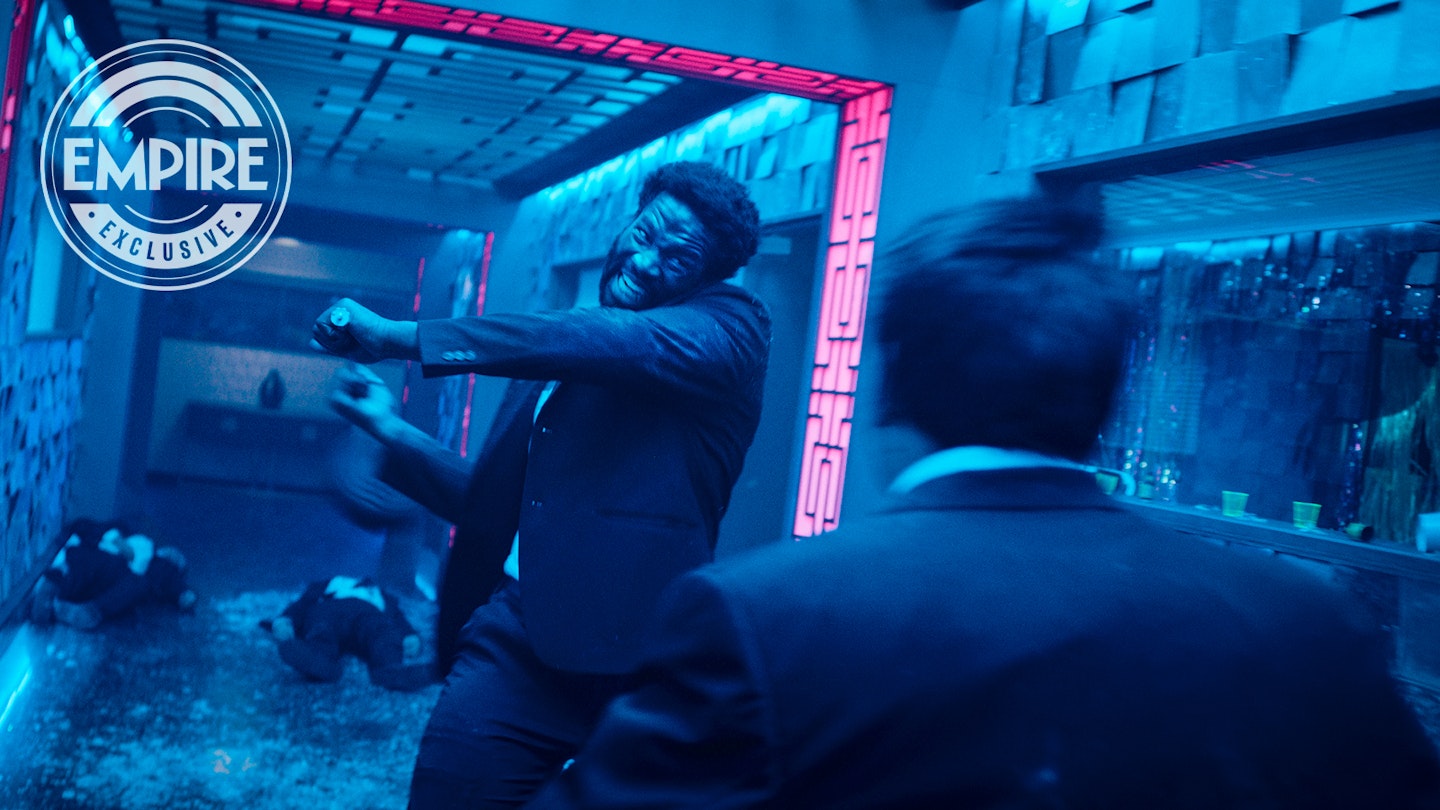Back in 1986, Hal Ashby and Oliver Stone posited that in Los Angeles there are 8 Million Ways To Die. Well, London 2022’s got that beat. Pick a death, any death. By carving fork? By pick axe? By shower head? By gold-sequined dress? By karaoke mic stand? By cling film? In the second season of Gangs Of London, anything — everything — is a murder weapon.
If the crime-thriller show conceived by martial-arts maestros Gareth Evans and Matt Flannery (The Raid) doesn’t have British TV’s biggest on-screen body count, we’ll eat our pork-pie hats (a killing method, surprisingly, yet to be seen in Gangs Of London). Nobody is safe in this parallel-universe capital of shady cabals, powerful gangs, extreme criminal acts and apparently zero uniformed police officers. If you thought any of Season 1’s main-cast survivors had earned a suit of plot armour, think again. One of them even buys the farm in the first bleedin’ episode.
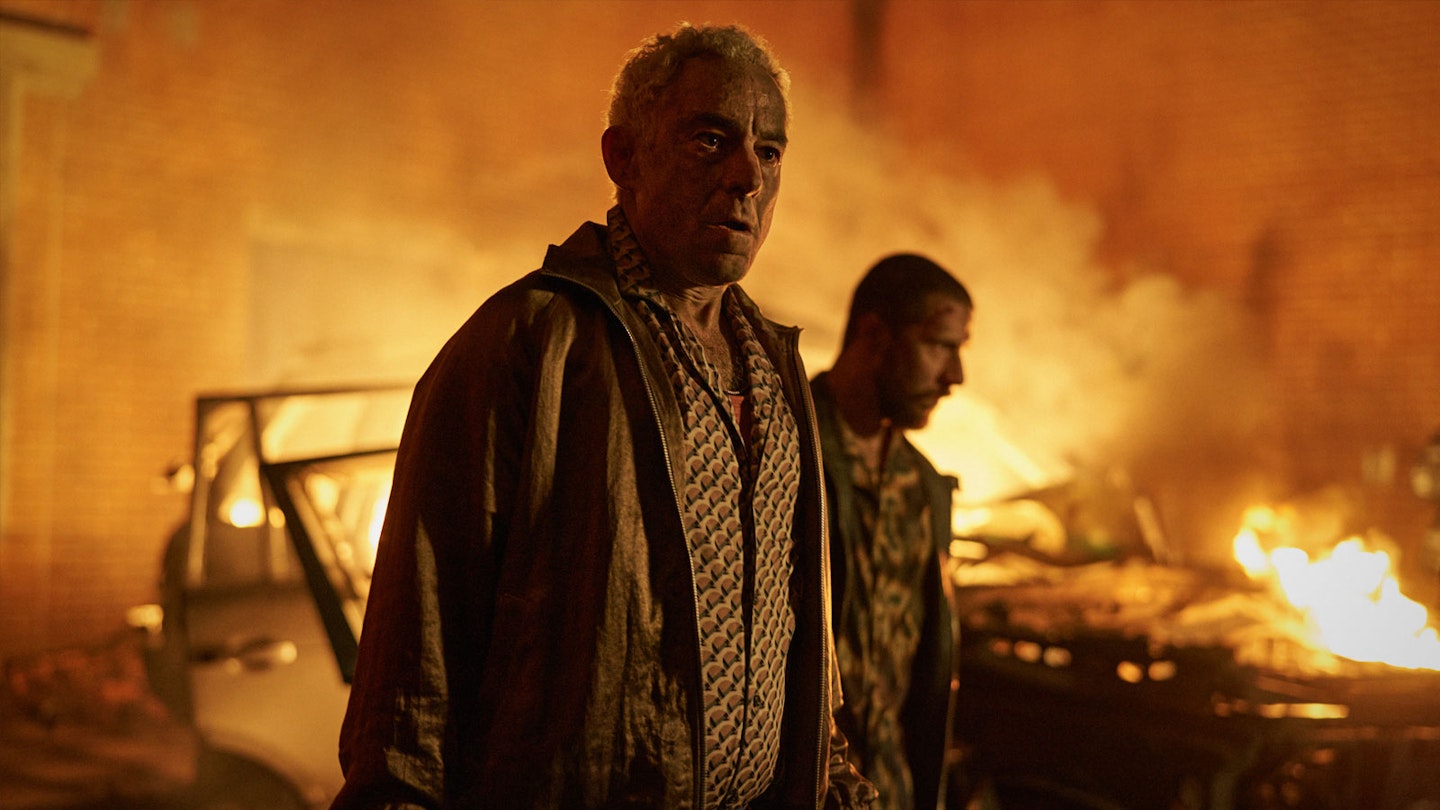
And it’s equal-opportunity slaughter, too. The brutality meted out to women, while certainly disquieting, is at least placed in the context of a fully inclusive bloodbath. Meanwhile, you wouldn’t want to be a bystander to any of the show’s signature set-pieces. The collateral damage caused by hero and villain alike (though the two are pretty much indistinguishable by now) is distressingly phenomenal.
Against this very familiar backdrop, underworld alliances flip and switch with such frequency it’s almost hard to follow.
One of the greatest joys of the show’s previous season, if “joy” is quite the right word, was the intensely inventive way Evans and Flannery mounted their grisly mayhem, particularly in the two episodes they directed and shot, respectively. The show felt built around its action sequences, to some degree. Its muscular rivalries and lethal double-crosses were, frankly, less memorable than the violence they catalysed. But Evans and Flannery have now stepped away from the show’s front line, and their influence is missed. Sadly, there isn’t really anything in our seven viewed episodes that truly matches the pilot’s insane pub brawl, or Season 1 Episode 5’s awesomely pyrotechnic Welsh-cottage carnage.
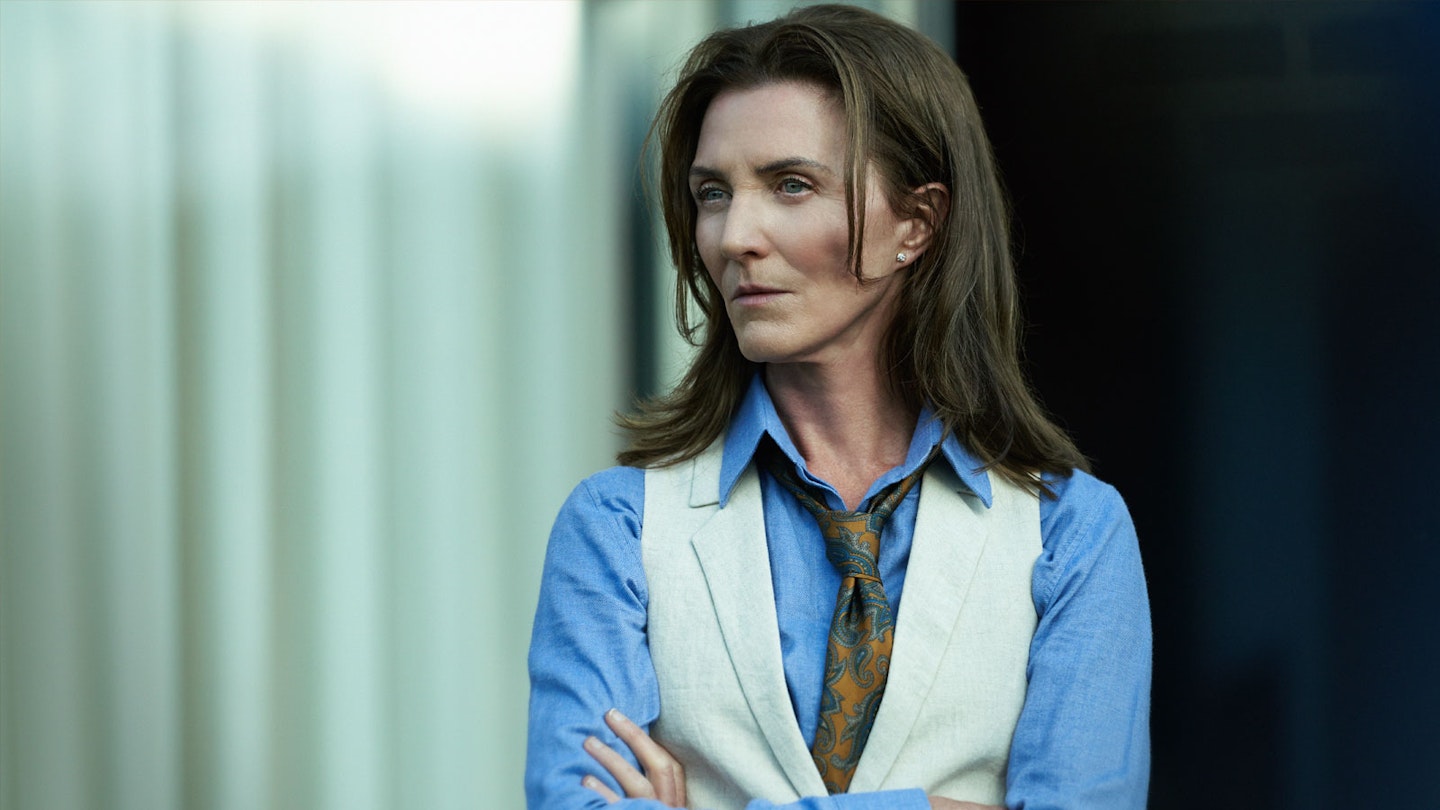
However, new showrunner Corin Hardy (The Nun), who directed almost half of the first season, proves a capable successor to the pair, and it says a lot that his episodes are Season 2's strongest. He reintroduces battered anti-hero Elliot (Ṣọpẹ́ Dìrísù) — now devolved from undercover cop to unwilling assassin — via an eye-popping tussle with a Turkish giant, then later plants him in the middle of an almighty shoot-out in Billingsgate fish market, before ‘treating’ him to a desperate, shattered-glass-showered mêlée in a neon-lit karaoke bar. Hardy also plays impressively true to his horror roots, especially during a home-invasion set-piece in the first episode, which somehow makes you feel terrified for a burly, bearded Albanian gang boss.
Outside of these moments, though, the show is less arresting than it used to be. Clichés fly thick and fast. There’s probably a drinking game in how often characters talk about “business” and “owning” the city, while visually it favours drone-circled office blocks, lawless estates and rain-beaten warehouses. Against this very familiar backdrop, underworld alliances flip and switch with such frequency it’s almost hard to follow. Not least because some of these deals are so implausible, in terms of character motivation. And the utter absence of levity is felt even more during Round Two. Yes, we get that gangstering in modern London is a super-serious business, but would it really hurt to brighten the tone in places? To add a little texture? (Though maybe not during the numerous torture scenes.)
Still, it’s great to see Dìrísù back as Elliot, bringing valuable soulfulness and rock-and-a-hard-place pathos to this lethal bruiser, while American-Kuwaiti actor Waleed Zuaiter gives good antagonist as the new villain-among-villains Koba, who stalks where other mobsters fear to tread. When he’s told that families are off-limits, he shrugs that if people are stupid enough to have them, then “families are fair game”. Like we said: nobody is safe in this show. And in that sense at least, Gangs Of London has stayed interesting.
